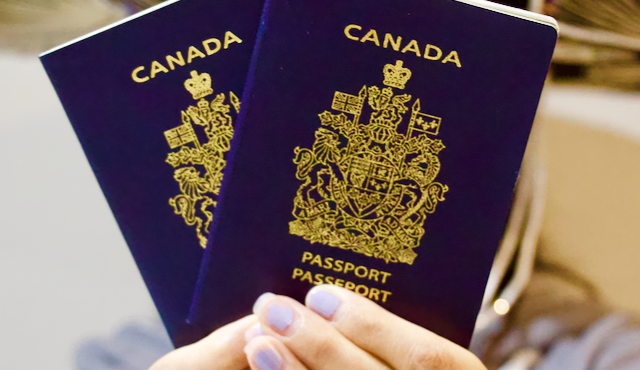If there is any risk of your children being removed from Canada without your consent during separation or divorce, it is vitally important to know the laws of your spouse’s homeland and whether his or her country of origin is a signatory to the Hague Convention.
‘I don’t know if they think I’ve left them, or if I’m dead,’ says Shelley Beyak
Shelley Beyak of Abbotsford, B.C., hasn’t spoken to her children, Mia, 9, and Liam, 8, since they were taken to Beirut in March, without her knowledge or consent.
Her ex-husband, Wissam Tarabichi, with whom she had a joint custody agreement, told her he was taking the children to the United States for a week-long trip. Instead, upon arriving in Seattle, they boarded a flight to Paris, then another to Beirut.
“They need to talk to me, they need to know I’m still here,” Beyak said of her children.
“I don’t know what they’ve been told about me, I don’t know if they think I’ve left them, or if I’m dead.
“I know that this is going to have long-term harm and it’s very, very important that I at least get in contact with them as soon as possible.”
Beyak’s case is not unique. Montreal-based human rights lawyer Taima Al Jayoush said she is working on similar cases involving two American women, one Australian, and another Canadian woman in Chatham, Ont.
In all these instances, children were taken to Lebanon without their mother’s knowledge, Al Jayoush said.
She said the cases highlight how the gaps between international legal systems leave women vulnerable, because in many Middle Eastern countries, fathers are prioritized for guardianship and custody of children.
In Lebanon, women cannot take their children out of the country without written permission from their husbands.
Canadian authorities lack jurisdiction
There is now a Canada-wide warrant for Tarabichi’s arrest, and notices were put through to Interpol that he’s wanted internationally. The issue was raised in the House of Commons last week. But Canadian authorities have no jurisdiction to force Tarabichi to bring the children back to Canada.
Lebanon is not a signatory to the Hague convention, a multilateral treaty that protects children from international abduction. And it does not recognize international child kidnapping by parents as a crime.
Al Jayoush said she wants the Lebanese government to get involved in finding the children and sending them home to Canada.
“The solution is not here. The kids are not here. The only way to get the kids back is to get a special order from Lebanon.”
Global Affairs cites privacy
Beyak, who works with youth, and Tarabichi were married in 2007 in Lebanon and divorced 3½ years later. Beyak later remarried.
But Tarabichi does not appear to have registered their divorce in Lebanon. As a result, Beyak has been warned that if she travels to Lebanon, she could be jailed for adultery. Beyak has hired a lawyer in Beirut, who is working to ensure Beyak’s divorce has been ratified in Lebanon, so that she can visit by Christmas.
In the meantime, she’s asked Global Affairs to conduct welfare checks on the children, which can be requested and carried out via the UN Vienna Convention. But Global Affairs told her that Tarabichi is protected by privacy laws, and it can only request that he comply.
Beyak has tried to contact her ex-husband with no luck.
“I tried emailing him. I tried emailing his family. I’ve tried calling his family. They won’t talk to me. And Wissam won’t talk to me,” she said.
In a statement to CBC News, Global Affairs said it is “aware of the case involving the abduction of Canadian children to Lebanon,” but that “due to provisions in the Privacy Act, further information cannot be disclosed.”
Not isolated
Al Jayoush said many women don’t realize they’re at risk of losing custody of their children when their marriages are recognized by countries with legal systems that favour fathers for guardianship.
“This is a very, very clear violation of women’s rights and children’s rights and it’s still happening over and over again,” she said.
Al Jayoush said she is hopeful the Lebanese government will get involved because Lebanon has signed several human rights treaties and has recently introduced some legal reforms regarding women’s rights.
The five women have also received expressions of support from the Lebanese ambassadors in Washington, D.C., and Ottawa, and Lebanon’s foreign affairs minister, said Beyak and Al Jayoush.
Beyak said she still hopes she and Tarabichi will be able to come to an agreement, and passed on a message to her children.
“I want them to know that I am looking for them. I don’t know exactly where they are. We all love them very much and we hope that they will come back to Canada soon,” she said.





